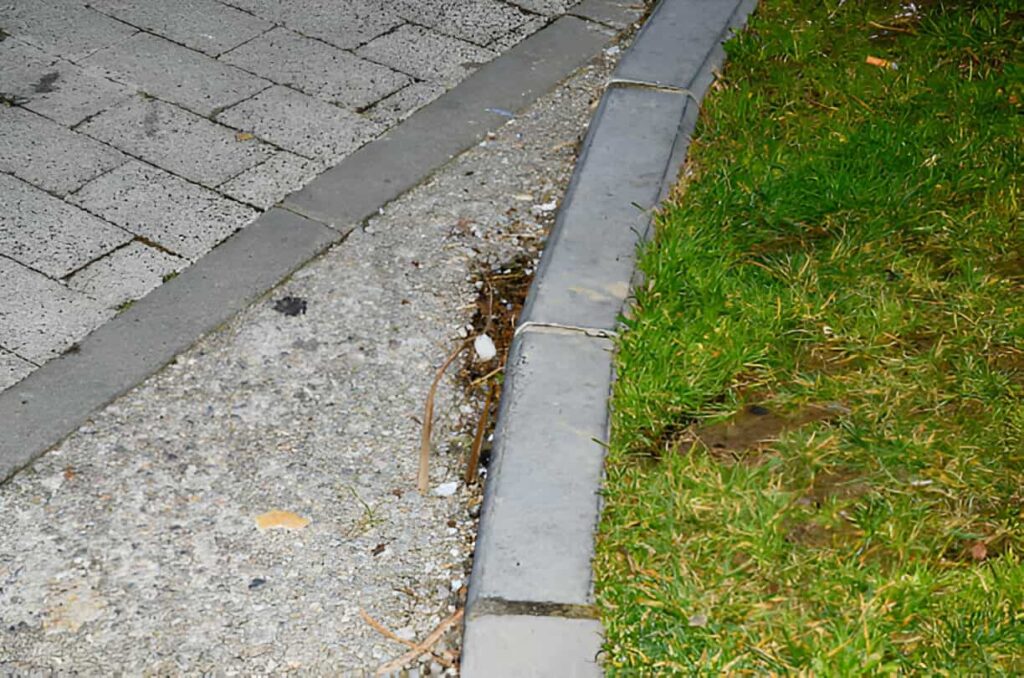In York City, sidewalks are an essential part of life. They not only keep pedestrians safe, but they also make the city look better and work better. Sidewalks can get worn down over time, just like anything else outside. If you own a home in New York, keeping the sidewalks next to your home in good shape is your job.
There are problems with loose pavers, uneven surfaces, or cracks in the pavement. This article will help you figure out what to do. We’ll focus on the practicalities of sidewalk repair in NYC, but a smooth sidewalk can also enhance your home’s curb appeal.
When Does Your NYC Sidewalk Need Repairs?
Let us discuss the most common sidewalk damage in more depth so that you can spot these problems immediately.
Breaks and Cracks
The concrete on your sidewalks can extend and shrink during the winter and summer. When the temperature changes and too much pressure is put on the concrete, cracks appear. These cracks could be hair-thin, deep, shaped like spider webs, or look like alligator skin. If you ignore these cracks, water could build up and cause holes in the ground.
Potholes in the Sidewalk
Water damage, subpar construction materials, or aging are the three main causes of potholes in sidewalks on your property. If you do not fix potholes, they can get bigger and become very dangerous for pedestrians. It is also not a good idea to have big holes in the concrete; the whole thing needs to be replaced.
Drainage Issues
Poor water drainage can lead to soil erosion and water pools. Not letting water drain away can cause soil to wash away and water to pool. Because the damage from the drainage problem can not be fixed, the whole concrete structure has to be replaced. Drainage problems must be fixed right away to keep the entire sidewalk structure from getting badly damaged.
Uneven Sidewalks
Repairing uneven sidewalks is essential not only for safety but also for maintaining your property’s value. Techniques like polyurethane concrete lifting provide a reliable solution by stabilizing sunken concrete slabs. This method involves injecting a lightweight foam beneath the affected areas, lifting them back to their original position and preventing further damage.
1. Soil Erosion:
When sidewalks are damaged or poorly drained, water can seep into the ground underneath. Over time, this water can wash away the soil that supports the concrete slabs, causing them to sink and become uneven. This not only affects the appearance but also poses safety hazards, potentially decreasing your home’s value.
2. Freeze-Thaw Cycle:
During winter, water that has seeped under the sidewalk can freeze, causing the concrete slabs to lift. When the ice melts, the slabs settle back down, but the repeated freezing and thawing can break up the compacted soil underneath. This results in further sinking and unevenness of the concrete surface. Addressing these issues promptly can improve your home’s curb appeal and overall value.
Tree Root Growth
Close-by trees can also harm walkways. Are you curious about it? When tree roots do not get enough water and nutrients from the ground, they grow upwards to get them. As they get bigger, they might crack the concrete on the outside and do other damage. NYC Parks is in charge of fixing tree root damage, and you can call them to have the job done right.
How Do You Get Your NYC Sidewalk Repaired? 5 Easy Steps
Want to know about the sidewalk repair process? We are here to tell you about the step-by-step process to timely fix your sidewalk issues.
- Hire a contractor with experience
For sidewalk repair in NYC, you should find a licensed sidewalk contractor with years of experience. Also, you should be aware of the latest tips on how to request a sidewalk repair near your area.
- Ask For An Inspection Permit
It is the professional contractor’s job to get a sidewalk inspection permit once you hire them.
- Assess The Situation
After getting the permit, contractors check out the sidewalks and ask for NYC sidewalk permits.
- Fixing The Problem
The condition of your sidewalks determines whether the contractors should fix them or replace them entirely.
- Asking For Dismissal
Experts call 311 after the repairs are done and ask that the sidewalk violation be dropped. The DOT agrees, and the violation is dropped after the inspector inspects the repairs.
Why Fixing Up Your Sidewalk Is A Good Idea?
Fixing up your streets and getting rid of people who break the rules is beneficial for people and property.
- Maintaining your sidewalks will make your home look better from the street and raise its selling value.
- Regularly fixing and maintaining your paths will keep people from suing you for injuries they receive.
- If you take care of minor DOT violations on time, you can avoid paying a lot of money for repairs and big problems in the future.
Conclusion
Fixing and maintaining sidewalks on time not only makes your property look better but also keeps people walking safely. If we act quickly and proactively on these problems, we can prevent more damage. By investing in timely sidewalk repairs, we not only protect our property’s value but also contribute to the overall well-being and safety of our community



